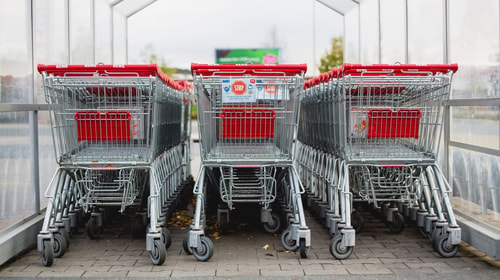I often receive emails with acronyms in the subject title. The sender assumes I will know what they are referring to. Although honestly, more often than not I have to do at least one Google search to remind myself of the meaning! More recently though I have been inundated with emails with the acronym ‘COL’ in the title, but this time (unfortunately) no Google search is required.
UK inflation rates have hit levels we haven’t seen in 30 years, eye watering energy prices are predicted to rise again, and Northern Ireland tops the list of areas in the UK where the percentage of households is predicted to fall into fuel poverty by a whopping 76.3% by January 2023.
The cost-of-living crisis means that my WhatsApp groups have been repurposed and have become a directory of where to get the cheapest fuel in town and what latest household deals can be found in supermarkets and online. However, my WhatsApp friends and I will likely get through this with some cutbacks. We are unlikely to face the dilemma of choosing whether to feed our kids or heat our homes.
Others are not so fortunate. The people who are already bending and breaking under the weight of these price hikes and impossible costs to live are those with low incomes; families who cannot make any more cutbacks without having to either leave their children hungry or cold, or carers who cannot make cutbacks without putting the lives of their elderly or disabled loved ones at risk.
The Trussell Trust foodbank network says that the crisis has now become an emergency: “People can’t afford to put food on the table. This isn’t the cost-of-living crisis – it’s the cost of surviving!”
As public policy officer for the Evangelical Alliance in Northern Ireland, my job has two sides. On one side, I am monitoring and engaging with conversations in the public square. On the other side, I am listening to our members, church leaders, faith organisation leaders and everyday Christians about the issues that matter to our communities.
We regularly gather with our members, and in the last few months, I have seen an unprecedented level of members wanting to discuss the cost-of-living crisis. Through foodbanks, debt advice, social supermarkets, clothes banks, free school uniforms, community gardens and so much more, Christians are offering holistic care to people across Northern Ireland who are desperately in need of help.
This is a privilege marked with pain, as our volunteers working on the frontline hear the same heart-breaking stories of hardship caused by issues such as universal credit, debt or serious health issues.
So, as well as responding to the urgent needs in front of us, we are also calling for a reconsideration of government policies which don’t work for many people trapped in poverty.
The Christians we are working with are interested in living out the full calling of the gospel which is not just to care for the poor but to be advocates of the kind of justice and mercy that the Bible holds up as a standard. As Desmond Tutu was famous for saying, “There comes a point where we need to stop just pulling people out of the river. We need to go upstream and find out why they’re falling in.”
"As well as responding to the urgent needs in front of us, we are also calling for a reconsideration of government policies which don’t work for many people trapped in poverty."
Christians Against Poverty says that “debt and poverty drain hope from people’s lives”, boldly declaring, “we want to put an end to UK poverty in partnership with local churches” and they are doing it across the UK. They have helped over 20,000 families become debt free since 2010.
Christians believe in the power of prayer, and we will continue to pray for those who are fearful as we head towards a winter of growing costs.
The Evangelical Alliance has joined with more than 20 other church and faith based organisation leaders in a united response to poverty in Northern Ireland. This includes representatives from across the churches, the Salvation Army, St Vincent De Paul, Trussell Trust, East Belfast Mission and many regional foodbanks. On Thursday, 25 August, we sent an open letter to all 90 MLAs. We reminded them that addressing immediate needs in our communities cannot be left to the voluntary, faith and third sectors alone and we called on our political leaders to work together now to tackle this growing concern that cannot wait.
The cost of living crisis requires no Google search but does require government action now. The challenges are great but we believe we can and must respond to this cost of living crisis together.



